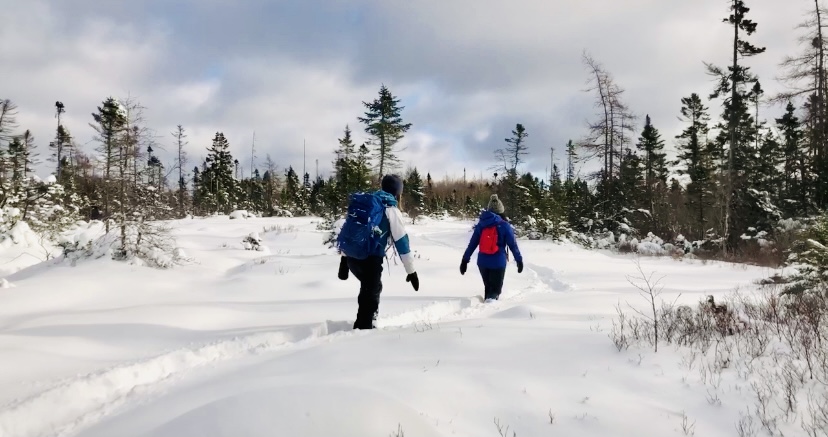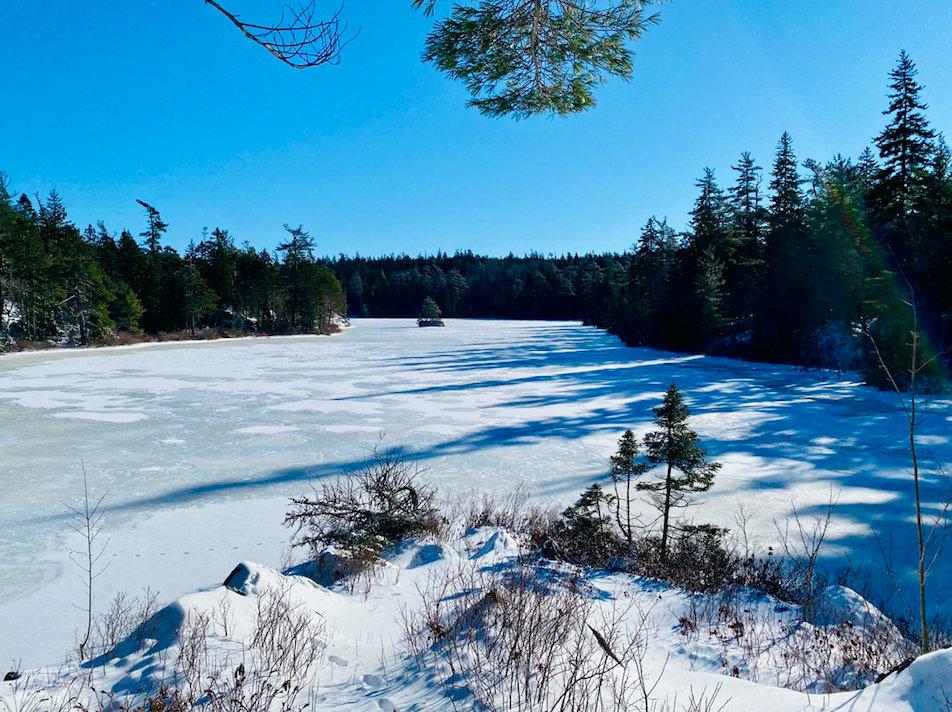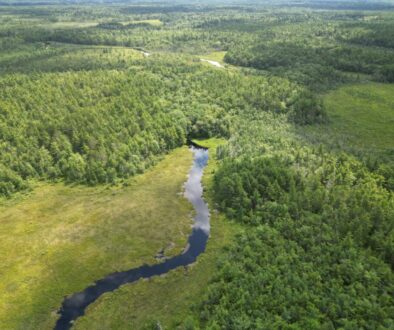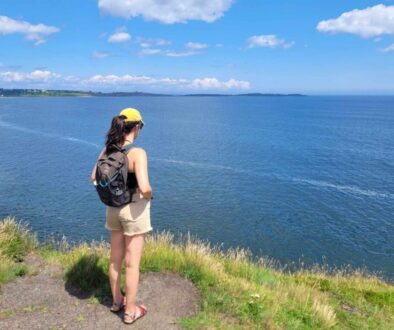Escaping the Winter Blues in Blue Mountain-Birch Cove Lakes

One cold Sunday in January, I decided to go for a walk in Blue Mountain-Birch Cove Lakes. I put on my warm layers, struggled to defog my windshield as I started my car, and eventually arrived at the park entrance near Maskwa Aquatic Club. I felt sluggish as I started down the icy path, bogged down by the weight of my to-do list for the afternoon.
It wasn’t until I reached Charlies Lake that my stream of thoughts finally slowed. As I looked out over the water, the sun peeked out from behind the clouds and warmed my face. I closed my eyes, listening to the snow fall in clumps from the pine trees behind me. I felt my heart rate calm and my mind relax. I just breathed.
Nature has brought me comfort many times this winter and throughout the past two years. When I feel anxious, a walk or a run outside helps me regain perspective and become more resilient to the day’s challenges. Unsurprisingly, my experience is not unique.
Across the country, people have flocked to parks to cope with the stress of living through a global pandemic. A recent poll shows 37% of Canadians are spending more time in nature since March 2020. Even doctors have begun prescribing National Park passes to patients struggling with their physical and mental health (see article).

Nature has tremendous benefits for our well-being, but it’s not always easy to access. Here in Halifax, we are very fortunate to be surrounded by beautiful natural spaces, like Sackville River, Five Bridge Lakes, and Blue Mountain-Birch Cove Lakes Wilderness Areas. It still surprises me that I can feel engulfed in a vast wilderness of forests, lakes, and wetlands only 15 minutes from my home on the peninsula.
But, even with parks nearby, many Haligonians are faced with difficulties in reaching the great outdoors. Most local wilderness areas can only be accessed by car, and few are located on public or active transportation routes. As a university student without a vehicle, I used to take the bus to Blue Mountain-Birch Cove Lakes, but I could only ever explore the portion of the park closest to the bus stop.
It’s critical that we reduce accessibility barriers that prevent people from enjoying the benefits of nature. In the case of Blue Mountain-Birch Cove Lakes, key land purchases are needed to improve public access and create a more welcoming experience for new visitors travelling by bus, bike, or car. Parks Canada’s recent announcement identifying Blue Mountain-Birch Cove Lakes as a priority site for a National Urban Park presents exciting opportunities to enhance access to this local wilderness area.
On these cold and short winter days, nature provides a source of peace and solace that should be available to everybody. I am grateful for my winter escapes to Blue Mountain-Birch Cove Lakes to ground myself in nature and remind myself of the importance of our work at CPAWS-NS to protect this stunning near-urban wilderness for all Nova Scotians.
Wishing you many outdoor adventures this winter!
Caitlin


